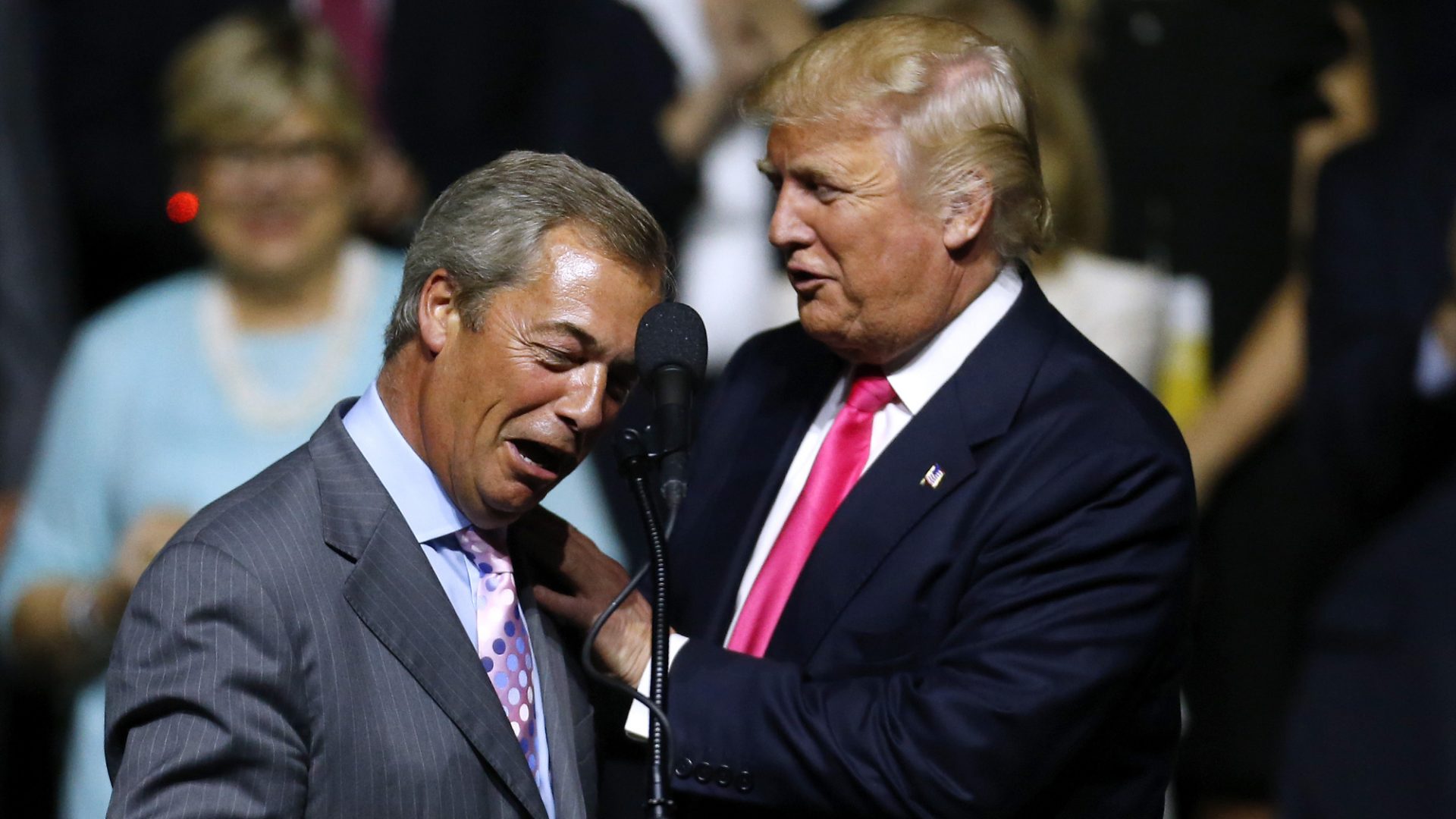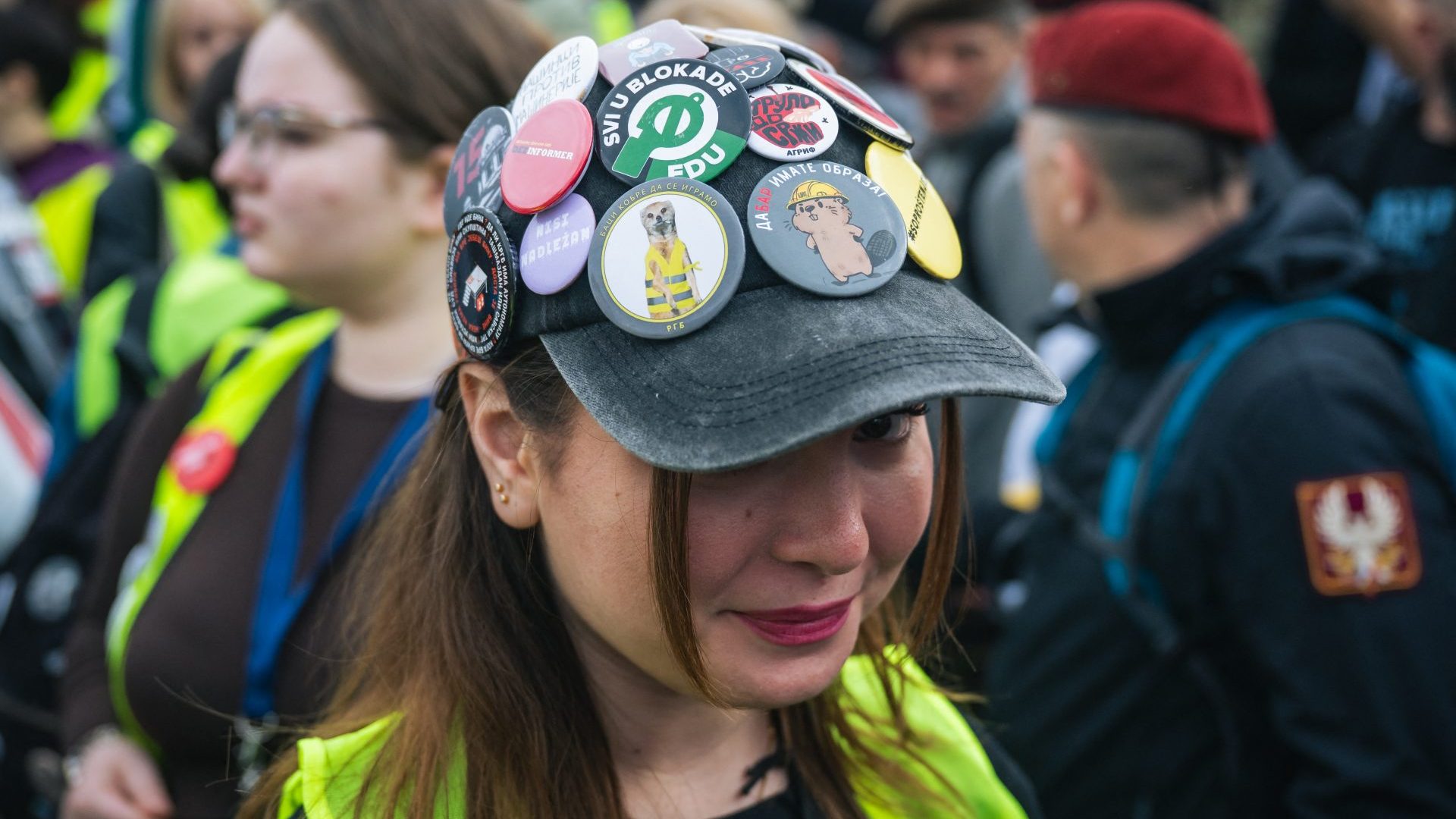In 2009, while I was a TV correspondent, I got to interview people from the Hungarian far right party Jobbik. What, I asked one of their leaders, is your relationship to the British National Party? The answer was: “bad.”
“Their problem is mainly with the Muslims,” he told me, “while ours is mainly with the Jews.” On the same basis, he expanded, Romanian fascists tend to despise Bulgarian fascists, because of rival claims to the territory of Dobrudja.
Historically, in the era when it was strongly aligned to nationalism, all fascism faced this problem. For Hitler and Mussolini, the Axis was an alliance of convenience, which Franco failed to join.
Over the past 15 years, however, the rise of social media and the turn to ethno-nationalism have helped both outright fascism and its right wing populist reflection become more internationally coordinated than
the left.
Once you define the enemy as liberalism, feminism and “cultural Marxism”, and reframe the immigration “problem” less around cultural issues and more around themes of “invasion” and “white genocide,” the way is open for a kind of far right internationalism.
Money has flowed from the American far right to its European counterparts, while ideas have generally flowed in the opposite direction. The Russian fascist Alexander Dugin is, for example, feted in the circles that staged Charlottesville and January 6, while the MAGA hat now coexists with the skull mask and the Celtic cross in the paraphernalia of European fascism.
Even right wing conservativism became, for a time, internationalist – with figures like Liz Truss and Boris Johnson becoming open Trump acolytes, while Reform’s Nigel Farage has all but branded himself as the British offshoot of MAGA.
But last week, a major karmic adjustment took place. Donald Trump declared a tariff war on the rest of the world which, if it turns out to be real and permanent, and not some piece of gestural bullshit, will tank the world economy, turning an already zero-sum game of macroeconomics into a potential death spiral.
Trump’s America, sitting on $36tn of debt, has decided to stabilise its own economy by bankrupting the global south and imposing severe headwinds on growth among its global north allies.
Suddenly, conservatives from Ottawa to London to Warsaw are stowing away their MAGA hats. Farage, who spewed hate for his own country for money in America, is suddenly very quiet about the merits of Donald Trump.
The account admin for Tommy Robinson’s Twitter channel, who crowed when Trump threatened 25% tariffs on the EU, has gone silent about matters of international trade policy now that Trump has slapped the same penalty on the Great British Mini Cooper.
The far right “international”, which functioned through social networks, conferences, publishing houses and floods of billionaire dark money, was useful not only to the MAGA movement but also to Vladimir Putin, whose bot farms assiduously promote and internationalise every incident of “migrant crime”, across a vast ecosphere of young men in their bedrooms.
Now it is in disarray. With the outbreak of trade warfare, and the consolidation of economic regions into relatively closed economic blocs that is bound to follow, internationalism becomes impossible for any conservative aligned to the national interest, difficult to sustain for the right wing populists and at the very least a source of cognitive dissonance for the extreme right.
Actually, we’ve been here before. In the 1920s, when the only exemplar of fascism was Mussolini’s Italy, his fanboys and girls in Britain actually called themselves the “British fascisti Ltd”. Until the Wall Street Crash of 1929, and the Smoot-Hawley Act passed by Congress the following year, fascists could maintain an element of international solidarity.
But as the Great Depression hit, and global trade slumped, right wing politics reshaped itself around autarkic economic strategies, where beggar-thy-neighbour became the norm in trade competition, and the conquest of both territory and natural resources became the goal.
Now we are likely to see a similar transformation. In the UK, Trump’s attack on Britain’s rule of law (via the abortion row), his direct attack on Britain’s national interests via tariffs, and his stab in the back for European security delivered by JD Vance at Munich, pose the question for Farage and his supporters: which side are
you on?
Reform is particularly vulnerable because, according to the anti-racist group Hope Not Hate, it is a coalition of disparate voter groups whose view of the world is radically different.
Around a fifth of its voters are the extreme, young racists in their bedrooms – the types who turned up at Farage’s Birmingham rally dressed like cut-price versions of Jacob Rees-Mogg. Another fifth are the “working right” – the white van men in black Fred Perry shirts, flexing their muscles as they entered the Birmingham Arena. Both these groups could be described as “fascist adjacent” and will be experiencing cognitive dissonance over the trade war.
Some will go full MAGA, backing Musk and Vance’s attacks on Britain’s rule of law and becoming emissaries for the demands that will follow: open the UK to chlorinated chicken, end the protest buffer zones around abortion clinics, repeal the Online Safety Bill, which – if it is ever properly activated – will force Musk and Zuckerberg to clean up their social networks. Others may revert to the old, nationalist forms of fascism familiar from the NF era.
But at least three-fifths of Reform voters are either politically or socially conservative Brits: some are not even racist, but driven by frustrations over mainstream party politics and the state of public services.
If, as is possible, the Labour government has to impose its own tariffs on America – not out of spite or retaliation but simply to protect the country from a flood of unwanted imports from elsewhere – these more moderate voters will be convincible that this is the right thing to do.
Likewise, as Britain steps up to the plate in support for Ukraine, as America withdraws, the fascists and populists will divide in the same way.
And though Farage is happy to garner the votes of the “working right” and the incel nerds, he knows he cannot win an election without the ex-Labour and ex-Conservative, and therefore more moderate and patriotic, working-class groups.
Trump’s trade war, in short, presents the Labour government – and indeed all mainstream politicians – with the opportunity to sideline Britain’s MAGA lovers and show them for what they are: malign agents of a foreign power.




